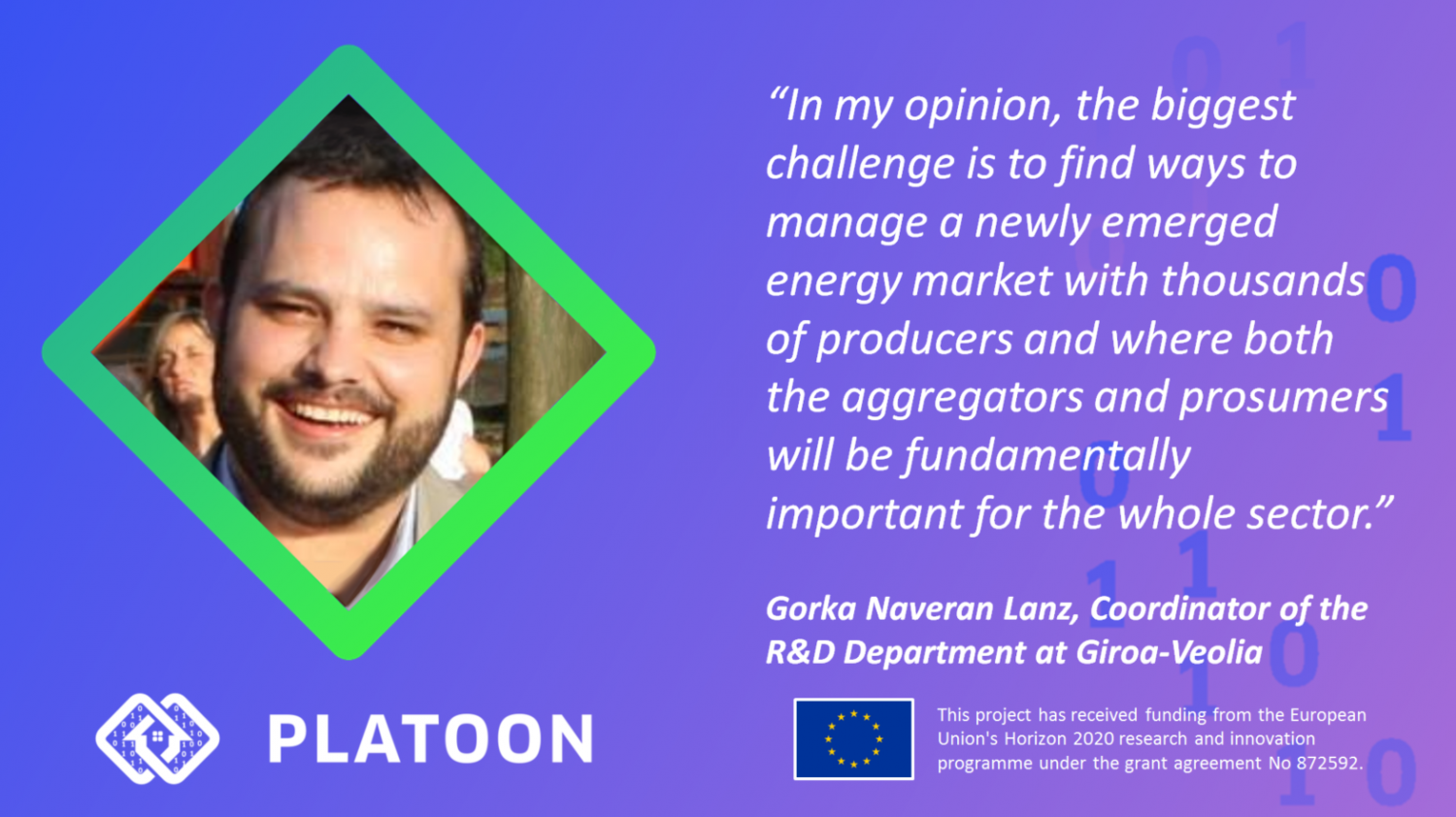
Gorka Naveran Lanz is the Coordinador of the R&D department of Giroa-Veolia. He is an Electronic engineer with more than 10 years of experience and was responsible for projects both in construction of industrial facilities and in the execution of energy efficiency facilities. During the last 3 years he was and still is responsible for the R&D department, managing an average of 12 annual projects; 5 of which are part of the European program H2020 and 7 of which are of local nature.
Gorka, what is your organisation’s role in PLATOON?
Giroa-Veolia is responsible for the Nanogune pilot site, and will provide the necessary data to carry out the tools that will be tested in the end.
How does PLATOON relate with you and your team’s background and interests?
In addition to the Giroa-Veolia R&D department, the Hubgrade department and the technical operation office are involved in the project. On the one hand, the Hubgrade department integrates and analyzes all the energy management tools available to the company, as well as communications with all the facilities managed by Giroa-Veolia. This department includes analysts, auditors, experts in energy management, communications and systems. On the other hand, the technical office manages the maintenance tools and organizes the work and maintenance tasks.
How will PLATOON digitalise and contribute to the development of the energy sector (e.g. with big data, edge computing and AI) in your opinion?
The integration of newly developed PLATOON tools within the energy sector will allow us to cover new business niches where Giroa-Veolia has not been present yet due to recent regulatory changes in Spain. In addition, the predictive maintenance tools will allow us to improve the services provided to our customers and have an advantageous position over our competitors.
Which stakeholder groups can benefit from PLATOON?
Any company will be able to benefit from PLATOON: whether large, medium or small companies that are interested in offering energy services either to private or public customers. Even the end users could be the energy managers themselves either of companies or public institutions that want to optimise the production, distribution and consumption of energy to be managed.
How do you expect the energy sector to be like in the future?
Clearly, the trend and the regulations are moving towards a more decentralized energy production where small producers will produce the largest amount of energy and will, at the same time, consume most of their own energy. This means that large production plants will increasingly play a secondary or backup role within the energy sector. Also, the management of the energy market will be more complex as the number of producers increases exponentially.
Which are the most significant challenges and opportunities related to the digitalisation of the energy sector in your opinion?
In my opinion, the biggest challenge is to find ways to manage a newly emerged energy market with thousands of producers and where both the aggregators and prosumers will be fundamentally important for the whole sector.
What are your expectations of the PLATOON project?
Giroa-Veolia has special interest in exploiting developments related to predictive maintenance, because it is a very important part of our business. Furthermore, the tools that allow us to enter markets of aggregators, prosumers and electricity demand companies, which will become a new division in Giora-Veolia.
Thank you, Gorka, for this interesting interview!